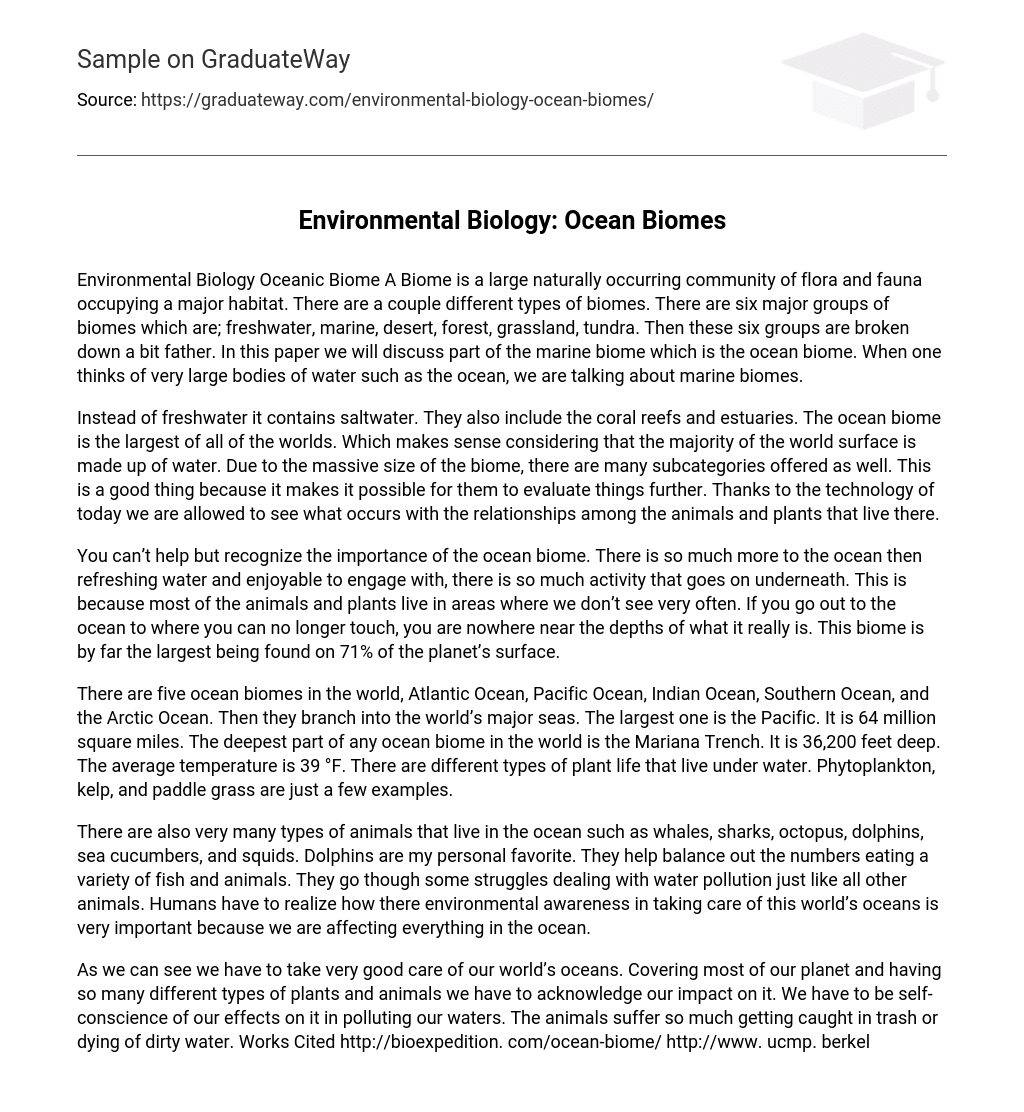A biome is a diverse habitat where different types of flora and fauna naturally exist. Biomes include freshwater, marine, desert, forest, grassland, and tundra. The ocean falls under the marine biome category, so when talking about large bodies of water like the ocean, we are essentially discussing marine biomes.
The ocean biome, unlike freshwater, consists of saltwater along with coral reefs and estuaries. Being the largest biome globally, it is unsurprising considering the extensive water coverage on Earth’s surface. The vastness of this biome permits various subcategories for further examination. Advancements in technology now enable us to observe and comprehend the interconnections among the animals and plants inhabiting this immense biome.
The ocean biome is incredibly significant, offering not only rejuvenating water and recreational opportunities but also serving as a habitat for countless activities beneath its surface. The majority of Earth’s creatures and flora reside in regions rarely encountered by humans. Even when exploring the ocean extensively, there remains much mystery surrounding its profound depths. Encompassing 71% of the Earth’s surface, this expansive biome is undeniably the largest.
The world is home to five ocean biomes: the Atlantic Ocean, Pacific Ocean, Indian Ocean, Southern Ocean, and the Arctic Ocean. These ocean biomes also extend into major seas across the globe. The Pacific Ocean, spanning 64 million square miles, is the largest in terms of area. The Mariana Trench, with a depth of 36,200 feet, holds the distinction of being the deepest part found in any ocean biome worldwide. The average temperature within these ocean biomes hovers around 39 °F. Beneath the surface, various types of plant life thrive including phytoplankton, kelp, and paddle grass.
The ocean is home to a diverse range of marine creatures, such as whales, sharks, octopus, dolphins, sea cucumbers, and squids. Dolphins have a vital role in preserving the ecosystem by feeding on various fish and animals. However, they are also at risk from water pollution. Recognizing the importance of environmental awareness in protecting the oceans is crucial for humans because our actions have a significant impact on all marine life.
Highlighting the significance of ocean conservation is crucial, given their extensive expanse and abundant biodiversity. It is imperative to recognize our impact on these oceans and be mindful of the repercussions caused by water pollution, which profoundly impacts marine life. The entanglement in trash and consumption of contaminated water causes immense suffering for animals.
Works Cited
- http://bioexpedition. com/ocean-biome/
- http://www. ucmp. berkeley. edu/exhibits/biomes/marine. php#oceans
- http://www. ehow. com/list_7427082_plants-live-ocean-biome. html





